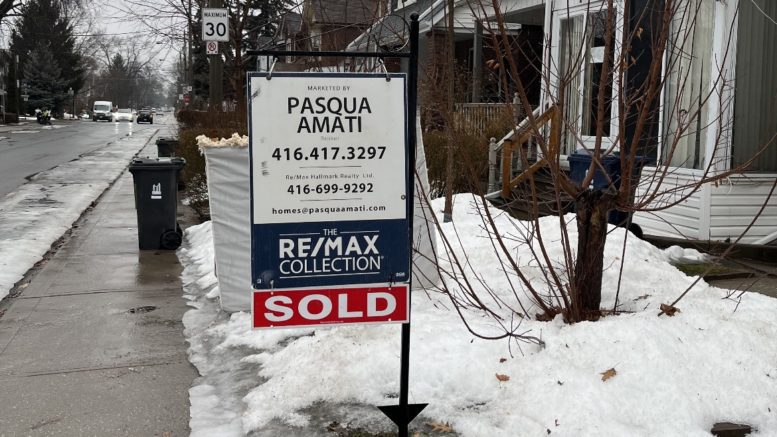Toronto may be heading into what some experts are calling a ‘tornado market,’ with housing prices up 28.6 per cent in January compared to last year, and demand is surging.
Let’s take a look at what led the market to its current position.
The role of the ‘spring market’
The spring market really starts every year in Toronto around January and February, when the benchmark pricing is set for the year, said Kristin Shensel, a real estate broker at Bspoke Realty Inc.
“Usually by March, the neighbors start to see what their neighbors are getting [for their home] and they start to think: ‘Oh, we’ll get our house on the market too’,” Shensel said.
“Then by March, April, May there’s more inventory so the demand slows down a little bit but the prices have already been set for the year … so there are still no deals to be had.”
Shensel said for first time buyers “it’s a really tough market,” but that this has long been the case in Toronto.
She mentioned that in order to secure housing, many buyers resort to bidding wars and bully offers — where the buyer and their agent attempt to submit a usually higher-than-list price offer before the offer date set by sellers.

Housing starts and inventory
“What ends up happening is just before Christmas there’s no inventory … so literally there’s nothing for anybody to buy and everything right now is going for crazy prices,” Shensel said.
The months of inventory for single detached homes reached the lowest level recorded in any quarter at the end of 2021 at 0.5 months, according to data from the Canadian Real Estate Association. Months of inventory for semi-detached homes, condominium townhouses, and condominium apartments were much lower in the fourth quarter compared to previous fourth quarters as well.
The months of inventory measure indicates how long it would take to sell available inventory at the existing sales rate.
Christopher Zakher, a senior economist at the Canada Mortgage and Housing Corporation, said that since prices for ground-oriented homes have been so high, the condo segment has become more attractive for some. In the beginning of the pandemic, people were “a little bit uneasy” about staying in denser dwelling types, but this has changed as things have reopened, he said.
“There’s so much residential construction going on right now, but there’s a backlog … It’s kind of difficult to bring a sufficient number of units in such as to have a moderating impact on the prices,” he said, referring to ongoing condominium builds.
Rising demand
“In the last year, demand has kind of swung back like a pendulum in a way to the condo segment, just because it’s more affordable than those ground-oriented dwellings,” said Zakher.
The sales-to-new listings ratio is calculated by the number of existing homes sales divided by the number of new listings entering the market.
In early 2021, the ratio remained “persistently elevated” for all housing types, according to a housing market assessment conducted by the CMHC.
Looking forward to the rest of the year
Ipsos polling results suggest that home buying intentions going into 2022 have lowered, and those who are contemplating buying may choose to wait.
Zakher said this may have a “cooling effect” on the housing market. He said the hesitancy to buy going forward may be due to buyer fatigue and rising prices wearing on people’s ability to afford higher mortgage payments.
However, this could spill over into the rental market, with people deciding to possibly remain in the rental market for longer, rather than buying, which may cause tight conditions in that market, he said.
Zakher also said that rentals with a higher price tag saw a “jump in demand” in 2021 which might signal that higher income renters decided to wait to make the move to home buying.
As for the spring, Shensel said that “the market should balance a little bit, and buyers should take heart in that, but it’s a bad time to be a buyer right now.”

